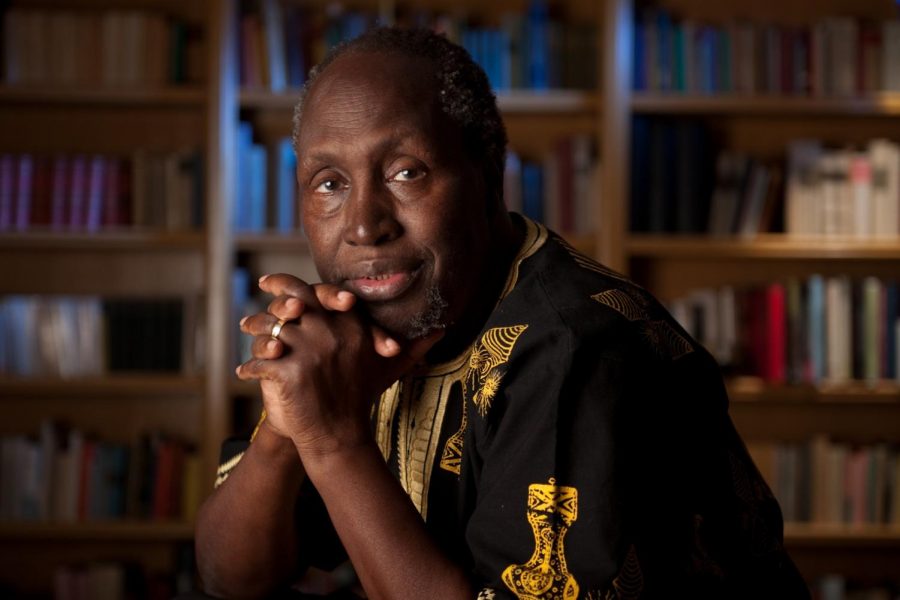Ngũgĩ wa Thiong’o Speaks At East Village Festival
Ngũgĩ wa Thiong’o’s new book explores the oftentimes dangerous symbiosis between language and culture.
April 20, 2018
On Wednesday night, deep in the East Village, Ngũgĩ wa Thiong’o gathered at the Nuyorican Poets Cafe to discuss his new book “Wrestling with the Devil” and the concept of decolonizing our minds.
The book talk was one of many taking place at the Pen America World Voices Festival, an international literary festival running until April 22 that aims to showcase authors from around the world and defend freedom of expression. The theme of this year’s festival is “Resist and Reimage,” and with prominent writers and intellectuals from over 118 countries, including key authors like Thiong’o, the name is fitting.
Thiong’o began the panel by reading from his memoir, which he wrote on toilet paper in a Kenyan prison. He was convicted without a sentence, a release date or any lawful reason.
His play, “I Will Marry When I Want,” stirred controversy for its uncensored political themes, subsequently provoking Thiong’o’s arrest. He had just returned from teaching in college to produce a play in a village that was performed in the local language and told the stories of everyday Kenyans.
Though the play differed from many others due to the use of native Kenyan language, Thiong’o said the play was unlike anything else done because it reflected “the conditions of factory workers” and the people with it, resulting in “something that wasn’t seen before.”
“How does an intellectual survive with no books, no paper and no pen?” he asked, recounting his time in prison.
It was 1980, and his persona was altered from a well-known professor and author to political prisoner K677. This was when he turned to writing a memoir in his native tongue.
The fact that his play was performed in native tongue is speculated to be one of the reasons for his arrest and a motive for writing “Wrestling with the Devil” in the same language. In his book, Thiong’o discusses the hierarchy that is created with language and culture and how post-colonial Africa only wanted writing in English, French or Portuguese.
He writes about this same notion in “Decolonizing the Mind: The Politics of Language in Africa” and engages in discussions regarding language frequently. Thiong’o mentioned to the crowd how he’s written an abundance of critical texts in English but has received no repercussions. It was only until after he produced a play in a native tongue did he receive punishment.
The festival allowed for Thiong’o to review his intellectual findings, those that are well-known, respected and important. His concepts align perfectly to what the Pen America World Voices Festival is working to display: voices of key authors from across the entire world. The concept of language as a tool is a powerful one, especially for luminaries like Thiong’o.
Email Brooke LaMantia at [email protected].



























































































































































